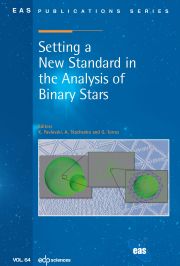No CrossRef data available.
Article contents
PRONAOS, a scientific, technical and human adventure: Homage to Guy Serra
Published online by Cambridge University Press: 25 September 2002
Abstract
PRONAOS was born as a project in the mid eighties. The Far Infrared Space Telescope (now Herschel), a Cornerstone of thehorizon 2000 plan of ESA, was the clear future of submillimetreastronomy, after severalballoon experiments and the tremendous success of the IRAS satellitein the neighbour field of infrared astronomy. Guy Serra and otherFrench scientists proposed to build a learning process in this newfield around the PRONAOS project, a technical and scientific precursorto future submm space missions. This project was fully supported byCNES and by CNRS (IAS and CESR at the first place). PRONAOS (ProjetNational d'AstronOmie Submillimétrique) was based on the use of a twometer telescope aboard a stratospheric balloon-borne gondola. The sizeand the complexity of the instrument made PRONAOS a very unusualballoon-borne payload. Along the 15 years of the project, and threeflights, a lot of learning processes took place. The main goals ofthis enterprise were reached. New and sometimes surprising scientificresults came out from the observations. Teams learned criticalscientific and technical lessons from this pioneering experiment. Somecontributions to Herschel benefit directly from this experience, andthe project Planck, a satellite of ESA, was born inside the PRONAOSteam. This project was also a major professional and human experiencefor young (and also mature) scientists.
- Type
- Research Article
- Information
- Copyright
- © EAS, EDP Sciences, 2002


